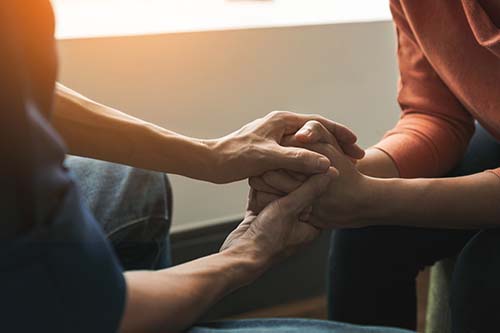Heroin addiction is one of the most serious health epidemics of modern times. Around 14,000 people die from heroin overdose yearly in the U.S., and roughly 902,000 use heroin annually, according to the National Center for Drug Abuse Statistics. Sadly, too many people do not get the medical help or professional support they need to recover from heroin abuse.

But there is hope for those struggling with heroin addiction. Treatment options, such as medication-assisted and behavioral therapy, can help individuals break free from heroin and lead a healthier, more fulfilling life. If you need addiction treatment in White Marsh, MD, contact MD M.A.T.T. at 410.505.7434 to learn how our programs can help.
What Is Heroin Abuse?
Heroin is an opioid drug made from the naturally occurring morphine in opium poppies. The term “abuse” refers to the misuse of a substance that has not necessarily developed into a full addiction disorder. For example, using prescription pain medication more often than the instructions indicate is abuse, but that does not mean a person is yet addicted.
Heroin is classified as an illegal substance and is not used for any medical purpose, so any use of heroin would be considered heroin abuse.
Heroin is a highly addictive drug that can quickly lead to physical and psychological dependence. It can be ingested by snorting, smoking, or injecting. Heroin binds with the brain’s opioid receptors and creates a euphoric sensation that puts people in a state of pain-free pleasure. The desire to experience this euphoric sensation repeatedly is why some individuals continue to use the drug and end up with an addiction disorder.
With time, heroin abuse leads to a tolerance for the drug. Larger and more frequent doses are needed to experience the “high.” The need to use more heroin increases the risk of overdose, especially if the drug is laced with other substances, such as fentanyl.
Signs You Need Heroin Rehab
It’s difficult to talk about addiction with someone you care about. There are many signs and symptoms that indicate you or someone you know may need heroin rehab. If you’re uncertain, watch for these signs of heroin abuse before starting a difficult conversation:
- The presence of drug paraphernalia, such as bent spoons, rubber tubing, lighters, needles, and pipes
- Extreme drowsiness, falling asleep suddenly (called “nodding”)
- Poor personal hygiene
- Memory loss, confusion
- Depression
- Anxiety
- Frequent flu-like symptoms
- Memory loss
- Avoiding friends, family, and activities
- Financial problems and personal valuables being sold or disappearing from the home
- Stealing from friends or family
- Problems at work or school
- Wearing long-sleeve shirts or jackets year-round (hiding needle marks)
One of the side effects of opioid use is constipation. People abusing heroin may need laxatives at a constant rate to deal with this issue.
Long-term heroin abuse can cause damage to every major system in the body. Kidney disease, liver disease, infections of the heart valves or heart lining, and pulmonary disease are only some health risks involved in heroin abuse. Don’t let your loved one or yourself develop a life-threatening health problem or die from an overdose. Heroin rehab is effective, and treatment programs are available near you.
Get Started with a Heroin Addiction Treatment Program in White Marsh, MD, at MD M.A.T.T.
If you or someone you care about could benefit from a heroin addiction treatment program in White Marsh, MD, make sure it offers a variety of evidence-based therapies, such as medication-assisted treatment (MAT). MAT combines medications with therapy to address addiction’s physical and psychological aspects. MAT is an FDA-approved and highly recommended medical program that keeps rehab patients safe and comfortable during heroin withdrawal and reduces the risk of fatal overdose.
MD M.A.T.T., located in White Marsh, MD, offers MAT for heroin addiction and various other substance use disorders. Our team is committed to helping individuals break free from the hold of addiction and build a successful recovery. Contact MD M.A.T.T. at 410.505.7434 for more information about MAT and our heroin addiction treatment programs.


